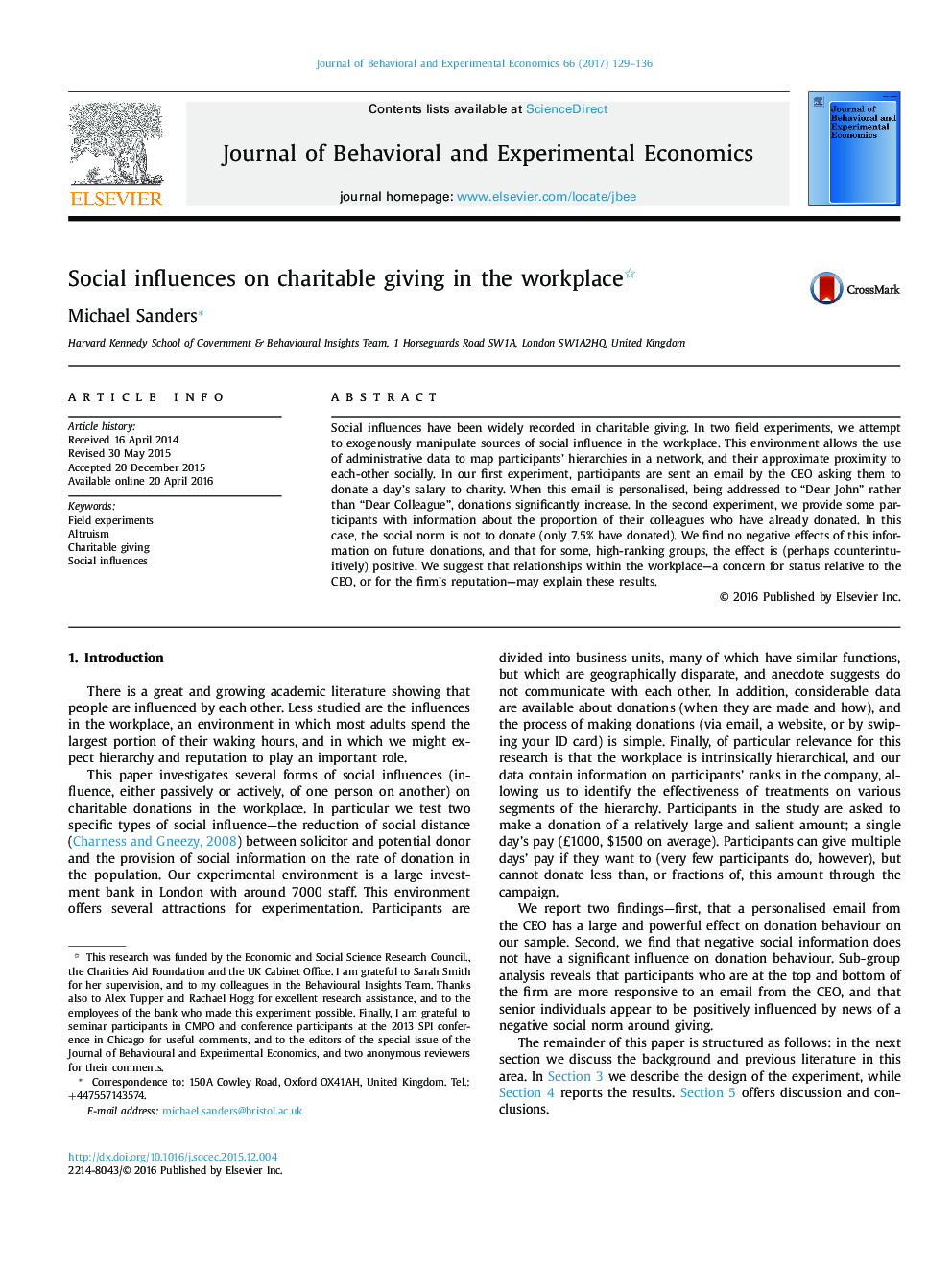| Article ID | Journal | Published Year | Pages | File Type |
|---|---|---|---|---|
| 5034209 | Journal of Behavioral and Experimental Economics | 2017 | 8 Pages |
â¢We conduct two field experiments on charitable giving in the workplace.â¢Participants are asked to donate a day's salary (>£500) to two charities.â¢A personalised email from the CEO significantly increases donations compared to an impersonal one.â¢Social information about the proportion giving (7.5%) does not affect giving.â¢High ranking individuals appear to be more (and positively) responsive to social information, but these effects are weak.
Social influences have been widely recorded in charitable giving. In two field experiments, we attempt to exogenously manipulate sources of social influence in the workplace. This environment allows the use of administrative data to map participants' hierarchies in a network, and their approximate proximity to each-other socially. In our first experiment, participants are sent an email by the CEO asking them to donate a day's salary to charity. When this email is personalised, being addressed to “Dear John” rather than “Dear Colleague”, donations significantly increase. In the second experiment, we provide some participants with information about the proportion of their colleagues who have already donated. In this case, the social norm is not to donate (only 7.5% have donated). We find no negative effects of this information on future donations, and that for some, high-ranking groups, the effect is (perhaps counterintuitively) positive. We suggest that relationships within the workplace-a concern for status relative to the CEO, or for the firm's reputation-may explain these results.
